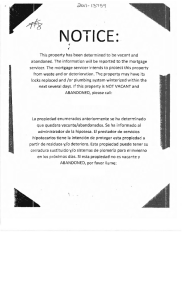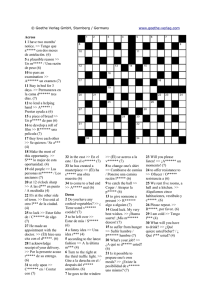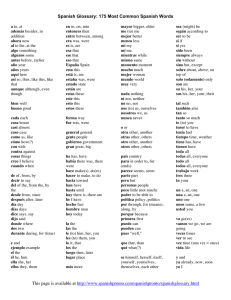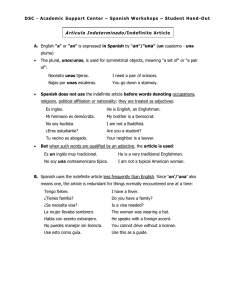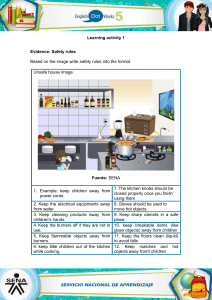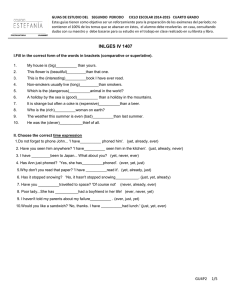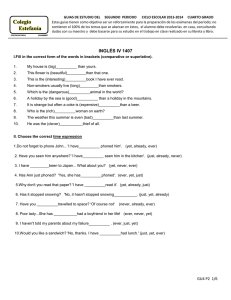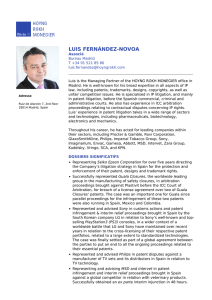Diapositiva 1
Anuncio
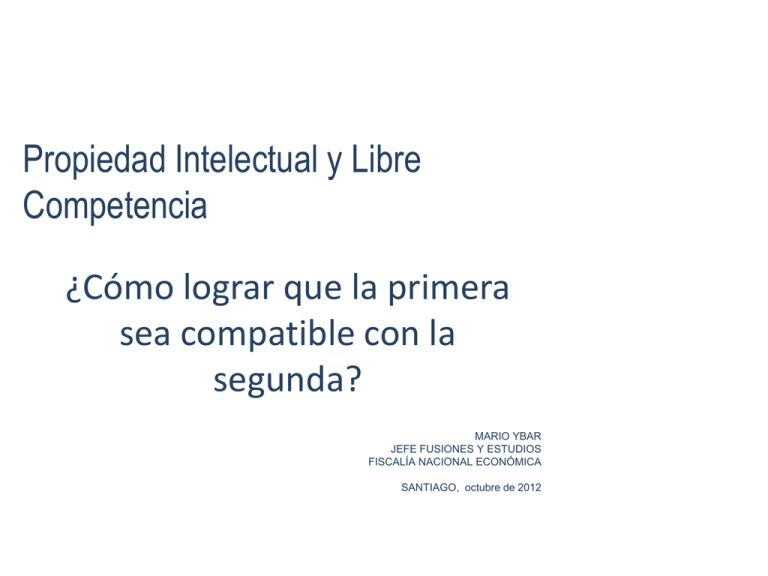
Propiedad Intelectual y Libre Competencia ¿Cómo lograr que la primera sea compatible con la segunda? MARIO YBAR JEFE FUSIONES Y ESTUDIOS FISCALÍA NACIONAL ECONÓMICA SANTIAGO, octubre de 2012 Nociones generales Patentes y poder de mercado. ¿Qué se necesita para que no exista contradicción? Equilibrio entre creación y diseminación. Propiedad intelectual es una excepción al régimen de competencia. En teoría, no hay contradicción. Ambas ramas persiguen el mismo objetivo final. Distintas Visiones Sobre la Propiedad Intelectual ¿Qué se necesita para generar un ambiente propicio a la innovación? Existencia de un nutrido dominio público de ideas y protección significativa para las innovaciones significativas (Herbert Hovenkamp, “Creation Without Restraint”.) Overprotecting intellectual property is as harmful as under protecting it. Creativity is impossible without a rich public domain. Nothing today, like nothing since we tamed fire, is genuinely new: Culture, like science and technology, grows by accretion, each new creator building on the works of those who came before. Overprotection Stifles the very creative forces it s suppose to nurture (Judge Alex Kozinski. White v. Samsung Elecs. Am., Inc., 989 F.2d 1512, 1513 (9th Cir. 1993) Dissenting opinion Thomas Jefferson: "If nature has made any one thing less susceptible than all others of exclusive property, it is the action of the thinking power called an idea, which an individual may exclusively possess as long as he keeps it to himself; but the moment it is divulged, it forces itself into the possession of every one, and the receiver cannot dispossess himself of it. Its peculiar character, too, is that no one possesses the less, because every other possesses the whole of it. He who receives an idea from me, receives instruction himself without lessening mine; as he who lights his taper at mine, receives light without darkening me. The Founders' Constitution Volume 3, Article 1, Section 8, Clause 8, Document 12 http://press-pubs.uchicago.edu/founders/documents/a1_8_8s12.html The University of Chicago Press J. Bentham, The Works of Jeremy Bentham (Bowring, ed.) (1843). IPRs are a “trivial cost” to society as “an exclusive privilege is absolutely necessary in order that what is sown may be repeated”, because an inventor “who has no hope that he shall reap will not take the trouble to sow • The inventor is one who has discovered something of value. It is his absolute property. He may withhold the knowledge of it from the public, and he may insist upon all the advantages and benefits which the statute promises to him who discloses to the public his invention”. (1908) Corte Suprema USA ¿Quién debe hacerse cargo de resguardar el equilibrio, y qué debe hacer? Lo primero, tener el marco normativo adecuado. En segundo lugar, dicho rol corresponde a las autoridades de propiedad intelectual Finalmente, y solo residualmente, esa función recae sobre los organismos de competencia 1. La patente debe ser difícil de obtener. No tiene sentido crear un monopolio sin obtener verdadera innovación a cambio. Menos todavía, conceder un monopolio a cambio de una innovación que se hubiese producido de todos modos. “Congress may not authorize the issuance of patents whose effects are to remove existent knowledge from the public domain, or to restrict free access to materials already available”. (Corte Suprema Estados Unidos. Graham v. John Deere Co., 383 U.S. i,6 (1966) Artículo 32º, Ley 19.039: Una invención será patentable cuando sea nueva, tenga nivel inventivo y sea susceptible de aplicación industrial. 2. La patente debe recaer sobre una verdadera invención 3. La patente debe ser conocida y tener límites definidos 6. Infractores inocentes 7. Necesidad de acreditar el daño 8. Diferenciación según mercado 4. La patente debe tener una duración razonable Críticas al regimen actual de competencia en USA y otros países Posner: My general sense, however, bolstered by an extensive academic literature, is that patent protection is on the whole excessive and that major reforms are necessary Hovenkamp: "Antitrust Policy has often reflected exaggerated fears of competitive harm, and responded by developing overly protective rules that shielded inefficient business from competition at the expense of the consumers. By the same token, the IP laws have often undermined rather than promoted innovation by granting IP holders rights far beyond what is necessary to create appropriate incentives to innovate”

